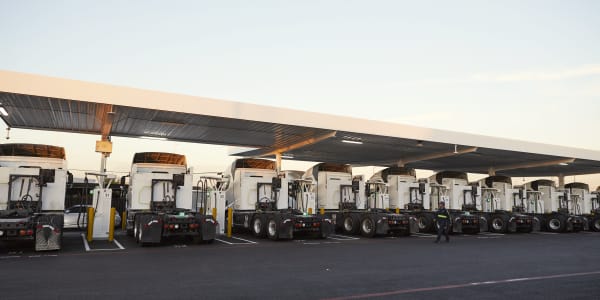Augmented reality is one of the hottest innovations in tech, but just how much of an impact is it having on our lives now, and what impact will it have in the future?
Two CNBC Disruptor 50 companies are paving the way for the future of augmented reality (AR) technology – Blippar and DAQRI.
CNBC's Julia Boorstin, along with DAQRI CEO Brian Mullins and Blippar CEO Ambarish Mitra, have the opportunity to lead a panel at the 2017 in Austin, Texas. The panel will discuss the impact of AR, how it's changing today's technology and what that will mean for the future. They will also discuss what investors and big businesses are looking for when it comes to investing in AR and the biggest hurdles to overcome for greater AR adoption.
To vote for this CNBC Disruptor 50 panel on augmented reality at South by Southwest in 2017, click here. Voting ends on Friday, September 2.
Blippar, a London-based company that launched in 2011, allows users to point their smartphone at an object and, through the Blippar app, unlock additional information, photos and interactive content about whatever it is they are looking at. The company claims that more than 65 million people in 170 countries use the app, and it counts Nestlé, Procter & Gamble, Nike and General Mills among its clients.
As AR technology evolves, the company has been able to go beyond brands and provide users with rich content on everyday objects. Point your phone and scan an orange, for example, and the Blippar app can tell you the nearby grocers that sell them. It also provides nutritional value and recipes.
DAQRI specializes in finding practical applications for augmented reality and virtual reality in the workplace. The company's flagship Smart Helmet is a combination safety helmet and goggles, which also provides the wearer with virtual instructions, safety information and mapping. The helmets weigh no more than typical hard hats but come with their own battery and docking station.
The device — which sells for between $5,000 and $15,000, depending on the features — is now being tested by Autodesk, GE, Topcon, Hyperloop, and KSP Steel. CEO Brian Mullins says companies using augmented reality work instructions have improved the speed of maintenance and inspection tasks by 46 percent and have significantly reduced accidents in the field.







